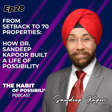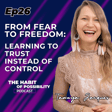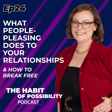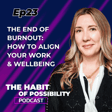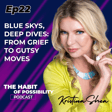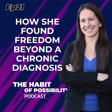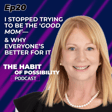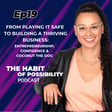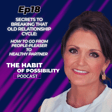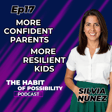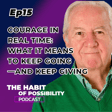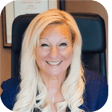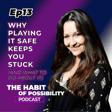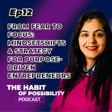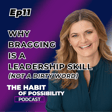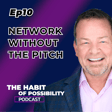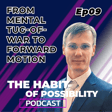
Community-Centred Leadership: What Growing Up in a Small Town Taught One Man About Business, Belonging, and Giving Back
Host Robbie Spier Miller speaks with Scott Bridger from the Burlington Chamber of Commerce about the impact of community-centred leadership in business and life.
- Scott shares stories from his small-town upbringing and early volunteer experiences that shaped his core values of integrity, accountability, and generosity.
- Learn how those values continue to inform his work supporting entrepreneurs, nurturing local business, and creating culture at the chamber.
- From volunteering at a day camp at age 13 to mentoring new business owners today, Scott’s journey is a powerful example of how service leads to success.
- The episode explores how connection, contribution, and character form the foundation of meaningful leadership—both in organizations and in everyday life.
- Perfect for entrepreneurs, community builders, and anyone who wants to lead with more purpose and people-focus.
With over 25 years of experience in the Chamber of Commerce network, Scott Bridger is a seasoned leader in community engagement and membership development, currently serving at the Burlington Chamber of Commerce.
He is a current member of the Burlington Today Advisory Board, a past President of the Canadian Chamber Executives, and was honoured as Employee of the Year by the Canadian Chamber of Commerce.
Scott’s deep roots in volunteerism include serving as Board President of Big Brothers Big Sisters of Waterloo Region and Chair of Cambridge Celebrates Canada Day—roles that reflect his lifelong commitment to giving back and bringing people together.
Scott is passionate about travel, sports, and family—and most of all, he loves connecting with entrepreneurs to help them grow, thrive, and feel at home in their community.
You can connect with Scott Bridger here:
https://www.burlingtonchamber.com/who-we-are-bcc/
Learn more about how Robbie Spier Miller’s coaching, training, consulting and speaking opportunities can help you enhance your personal and business performance here:
https://www.hypnosistrainingcanada.com
https://www.mindlinkconsulting.com
@hypnosistrainingcanada
@robbiespiermiller

